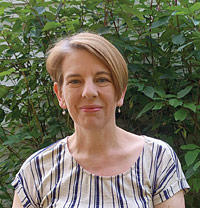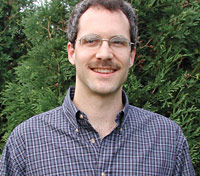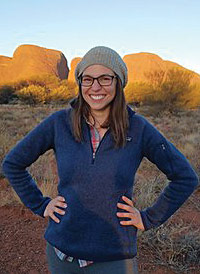Recipients of Regional IPM Centers DEIA Funding
In late 2023, the regional integrated pest management (IPM) centers released several diversity-focused funding opportunities. The goal was to make diversity, equity, inclusion, and accessibility (DEIA) both essential and commonplace within the IPM community.
This opportunity was collaboratively promoted by all four centers to be available on a national level, not limited to any single region, and applications were accepted until mid-2024.
Funding was awarded to eleven projects across the U.S. that address IPM needs of underrepresented stakeholders, distributed across two parts of the program: equity and accessibility projects and mini-grant projects.
Equity and Accessibility Projects
 |
Integrated Pest Management of Irrigation Ponds for Beginning Farmers
Victoria Wallace, University of Connecticut
Aims to address the critical issue of irrigation-pond management for beginning farmers by developing and implementing an IPM-focused educational program. By providing practical knowledge and support, the project seeks to improve pond health, reduce reliance on chemical inputs, and enhance the overall resilience of beginning farming operations.
 |
Developing and Sharing Approaches to DEIA Improvements for Invasive Species Outreach
Michelle Beloskur, Morton Arboretum’s Midwest Invasive Plant Network (MIPN)
Aims to enhance the accessibility and inclusivity of invasive species information and resources for a diverse audience. Through DEIA training, needs assessments, and material evaluations, MIPN will develop a comprehensive approach to improving outreach efforts and create a standardized accessibility framework for the organization and its partners.
 |
Heritage Farmers in Kentucky: Making Connections with Underserved Audiences
Nicole Gauthier, University of Kentucky
Aims to address the unique challenges faced by historically underserved populations (HUPs) in Kentucky’s agricultural sector by developing culturally sensitive IPM resources and building trust within these communities. The project focuses on understanding the needs of HUP specialty crop farmers, developing tailored IPM recommendations, and establishing strong partnerships to support long-term engagement.
 |
Healthy Urban Gardening
Brent Crain, Michigan State University
Aims to bridge the gap in IPM education for beginner, urban, and historically marginalized gardeners through a collaborative partnership with Young People of Purpose (YPOP). The project will develop and pilot a three-session healthy urban gardening course focused on IPM principles, targeting Black communities in Jackson, MI, with a goal to create a comprehensive curriculum package for broader dissemination throughout Michigan.
 |
IPM Beekeeping Education for Incarcerated Persons
Katie Lee, University of Minnesota Bee Squad
Aims to enhance beekeeping education for incarcerated individuals by incorporating IPM principles into their existing program. By providing hands-on training and IPM knowledge, the project seeks to improve bee health, reduce pesticide use, and empower incarcerated individuals with valuable skills for potential post-release employment.
 |
Innovative Community Approaches to IPM in Low-Access Areas
Shaun Martinz, Vista Ridge Montana
Aims to address food insecurity and promote sustainable agriculture in low-access communities through a community-based IPM program. By focusing on education, collaboration, and practical implementation, the project seeks to reduce pesticide use, increase crop yields, and empower community members to build resilient food systems.
 |
Development of a Novel “Trap Solution” Using Extracts from Mustard Trap Crop Varieties for the Management of the Harlequin Bug on Crucifers
Beatrice Dingha, North Carolina A&T State University
Aims to develop a sustainable and environmentally friendly solution to the harlequin bug infestation affecting collard green production. By exploring the potential of mustard plant extracts as a trap solution, the project seeks to reduce reliance on harmful insecticides and protect the livelihoods of small-scale farmers.
 |
IPM and Training Opportunities at the Utah State Correctional Facility
Michele Rehbein, Salt Lake City Mosquito Abatement District (SLCMAD)
SLCMAD proposes a comprehensive IPM program within the Utah State Correctional Facility with a goal of addressing the significant mosquito population on the facility’s grounds while providing inmates and staff with valuable training and skill-development opportunities. The project involves IPM education, pesticide applicator licensing, and the rearing of least chub fish as a biological control agent for mosquitoes.
Mini-Grant Projects
Three of the projects were funded under the DEIA mini-grant portion of the program, with a goal of addressing underserved communities through targeted education and resources.
Expanding Access to Cooperative Extension Services for Specialty Crop Growers
Gwen Funk and Kathi Mecham, University of Missouri Extension
Focuses on Amish farmers in Missouri, providing on-farm consultations to improve pest management, water quality, and nutrient management practices.
Enhancing DEIA in IPM through Targeted Workshops for Spanish-Speaking Farmers and Farm Employees in the Hudson Valley Region, New York
Raul Eliazar Lemus Garza, Cornell University
Aims to enhance IPM knowledge and adoption among Spanish-speaking farmers and farm employees in the Hudson Valley of New York through targeted workshops.
Farming Without Borders: Empowering Urban Refugee and Immigrant Farmers Through Language-Appropriate Crop and Pest Management Tools
Fernanda Krupek, The Ohio State University
Focuses on Bhutanese refugee and immigrant farmers in Ohio, developing language-appropriate IPM resources and training materials.
